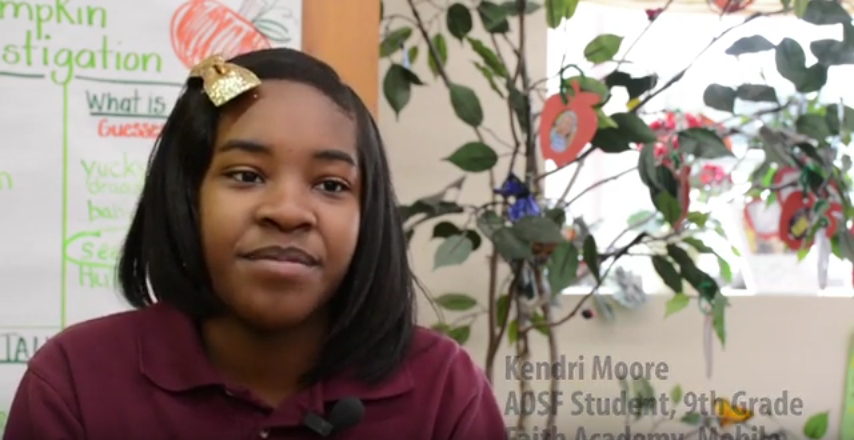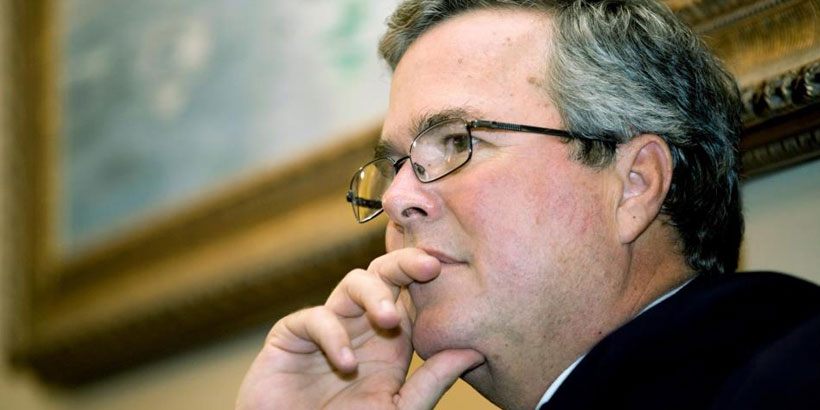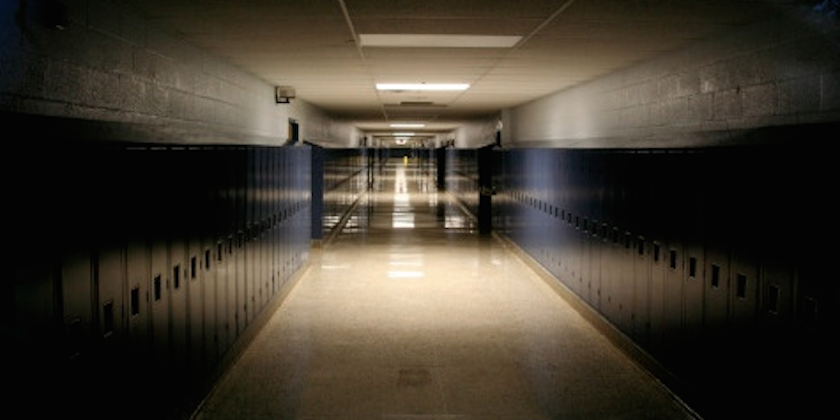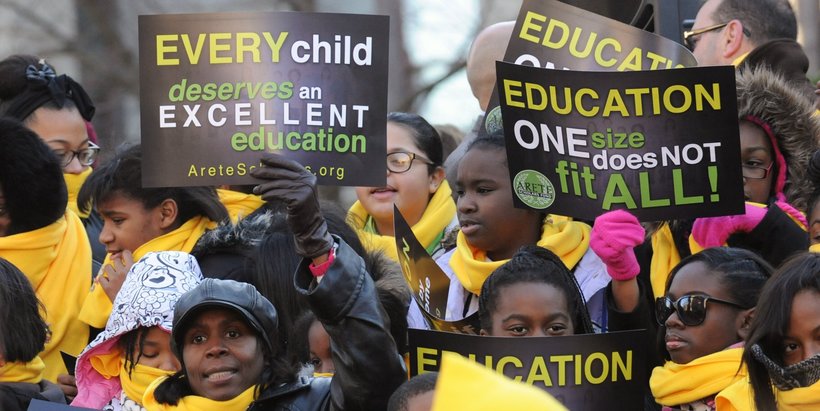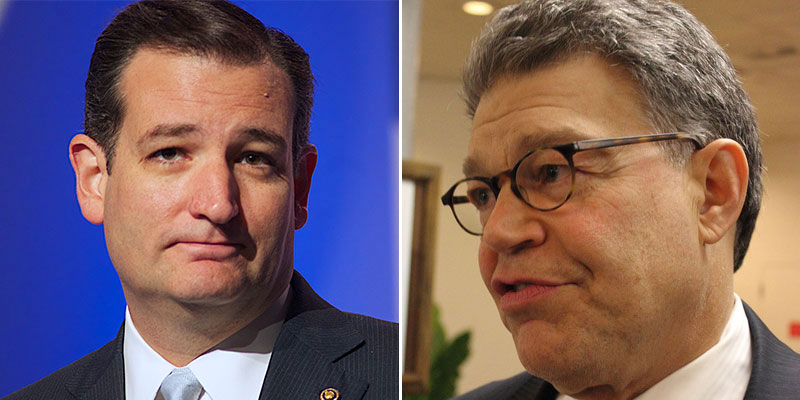On today’s edition of Yellowhammer Radio, hosts Scott Chambers and Andrea Tice sat down with school choice advocates Doug Tuthill and Leslie Searcy to discuss school choice successes in Florida and how to implement more education options for parents in Alabama. Tuthill is the President of Step Up For Students, a non-profit that administers the tax credit scholarship program for low-income students in Florida, and Searcy is the Director of a similar local group: the Alabama Opportunity Scholarship Fund.
RELATED:
1. Taxpayers support low-income children with donations to Alabama Opportunity Scholarship fund
2. How school choice forever changed the lives of two Alabama students, and how you can help
The AOSF is a new scholarship organization formed to help implement the Alabama Accountability Act. AOSF awards scholarships to eligible, low-income students, to pay for private school tuition or transfer fees to a non-failing public school.
Alabamians around the state are also able to provide more opportunities for school children by diverting up to 50 percent of their Alabama income tax liability to AOSF for a dollar-for-dollar state tax credit. Individuals, C corporations, S corporations, partnerships, and LLCs can donate.
In other words, without any additional cost, Alabamians can stipulate that half of their state tax liability go toward giving children a chance they otherwise never would have had. For more information on how to do that quickly and easily, visit the AOSF website.
Tuthill and Searcy discussed the power of their program and the impact it has on children in their Yellowhammer Radio appearance, which you can listen to below.
Andrea Tice:
We’ve got Doug Tuthill sitting at one end of the table and Lesley Searcy sitting next to me. You guys had no problems coming in?
Doug Tuthill:
It was great.
Lesley Searcy:
It was good.
Scott Chambers:
Made it in safely, nice. You guys are with the Alabama Opportunity Scholarship Fund?
Lesley Searcy:
That’s right. I’m the Director of the Alabama Opportunity Scholarship Fund. We’re a tax credit funded scholarship program and we’re serving 2,100 children across the state. It’s a tremendous program. An opportunity where tax payers can redirect a portion of their Alabama income tax liability to directly support the education of children. We’ve been up and going about three years and actually operate as a subsidiary of Step Up for Students out of Florida and that’s why Doug is with us today. Step Up for Students is the largest school choice program in the nation. They’ve been up and going for about 15 years and Doug is going to share what school choice looks like in Florida. The massive number of children that are being helped and really what the future of education will be looking like as we go in to new policies and we have a new president coming in, what the future might hold.
Andrea Tice:
So you mentioned you’ve been doing this for 3 years but Doug, you’ve been at this for 15? So you get to see the long term results of this initiative with scholarships?
Doug Tuthill:
Absolutely. We have about 107,000 kids in Florida on scholarships. They’re able to attend about 1,700 schools across the state, private schools, and really it’s about equal opportunity. We believe that every child ought to have an equal opportunity to develop themselves. Our scholarships are focused on low income kids to make sure that low income kids aren’t disadvantaged. We’re excited to see the growth over the last 15 years and I think the same is going to happen in Alabama. You know the old saying that, “nobody ever washes a rental car before they return in”? That’s because of the power of ownership because when people own something they’re more committed to it. Too often you know, because a lot of people don’t have choice in education sometimes the kids don’t own it, the families don’t own it. They feel like renters and so our job is to make sure that everybody has an equal opportunity to feel like an owner and when people own it the results are much more positive. So we’re excited about the growth in Florida, we’re adding about 10,000 – 15,000 kids a year and I think over time you’re going to see the same kind of growth in Alabama. Because families in Alabama are the same in Florida, they want to have a sense of ownership over their children’s education. No two children are alike. Any of use who have been parents know that your kids are very different and what works for one child may not work for another. One child may need a large school, another child might need a small school. About 80% of our kids go to faith-based schools for a lot families these values are very important.
Scott Chambers:
I know there’s a lot of programs that are offered and like you just mentioned, it’s different for each child in the way that they’re educated, in the tract that they take. But for those who are not familiar with school choice give us a little background on that.
Doug Tuthill:
Sure. Well, the idea is that you shouldn’t be assigned to a school simply by your ZIP code. Neighborhood schools are wonderful for a lot of kids but for a lot of kids they don’t fit. So the goal behind school choice is allowing families to match their child with a school that best meets their needs. And the only way to do that is to make sure they have the resources to choose different kinds of schools. It’s also by the way, great for educators. I’m a lifelong teacher myself and it’s great for an educator to be able to have the entrepreneurial freedom to develop their own ideas. Too often in my profession you don’t get to do that, it’s kind of a one-size fits all, top-down control monopoly. And for the chance for educators to be creative and innovative to create some diverse learning environments for kids. It’s good for educators, it’s good for teachers, and it’s good for families so I think it’s the wave of the future. Lesley mentioned the new President, potentially the new Secretary of Education, Betsy DeVos who is a great champion. She’s been a great advocate for us in Florida, she’s been a great help to us. She’s a woman that believes passionately in equal opportunity for all children. I think having her as the Secretary of Education is going to be a great boom for children in the country. It’s going to be a great boom for equal opportunity and I’m just very excited about the leadership that Betsy is going to bring to education in the United States.
Andrea Tice:
Since you went down that road, you feel that this new appointment by Trump will expand even more the school choice within states? Or at least free up states to have that choice?
Doug Tuthill:
Absolutely. Obviously the Federal government has a very limited role in public education and it should but she has a great bully pulpit and she has a lot of experience in these programs around the country. She’s very knowledgable about what works and what doesn’t work and I think she’s going to be going to states around the country saying, “You know, you can do better. Here are some opportunities for you to expand more opportunities for children.” And having her leadership and her vision, her experience is really going to be great for all families. Particularly those families that today, don’t have school choice. If you’re wealthy you can pick the neighborhood where you buy your home, you can provide transportation that other families can’t provide but Betsy understands that every child deserves the same opportunity and having her as an advocate for our country’s children would be wonderful.
Andrea Tice:
You mentioned this allows for choice for parents regarding their kids and what they know about their kids and where they want them to be. But kind of as a side effect this affects schools too. When people have the power to say, “I’m not going to your school.”
Doug Tuthill:
What’s interesting in Florida, what we found is that the neighborhood schools that had been most impacted by our program, that is kids that take our scholarships and go to another school, the academic achievement in those schools also increases. And I think a lot of it has to do with the competition effect, they raised their game and that’s critical. The other thing is that our program, like the program here in Alabama, we tend to attract high poverty kids into the program and reduce the concentration of poverty in those neighborhood schools. That also is a real help. So giving those families the power to have the choices to go outside their communities is a win-win for everybody. It’s a win for the neighborhood schools and it’s a win for the families that take these choices. It’s great all the way around, I mean it’s America, right? We’re built on freedom, we’re built on choice, we’re built on that entrepreneurial spirit and that’s what school choice is all about, is building on those basic assets.
Scott Chambers:
And I love the fact that it’s not limited to the ZIP code that you were born into. You’re able to reach out and seek education in better schools.
Doug Tuthill:
Yeah and again, a lot of it has to do with the fit. Not everybody that goes to Harvard has a great experience, you know? There’s no such thing as one-size-fits-all for anything and so that’s really what this is about. Let’s get out of the one-size-fits-all mentality and appreciate the diversity of our children and our families and let’s make sure we have enough educational pluralism, educational diversity to meet the diversities of every child. And we haven’t done that, it’s been a failure of ours and I think with Betsy DeVos’ leadership and with the movement around the country hopefully we’re moving in this direction.
Andrea Tice:
I have a question for you Lesley. Because we met at Hoover Tactical Firearms at the night that they had the shooting, I didn’t shoot I had to leave.
Scott Chambers:
Where we will be on Wednesday night and hope everyone is out there from 6pm until 8pm.
Andrea Tice:
Very beautiful segue-way there, Scott.
Lesley Searcy:
I’m looking forward to seeing you there again and I am planning to come.
Andrea Tice:
I was talking to you as we were kind of waiting around and you were explaining some of the details. This was all new to me, I’m ashamed to say, and you were mentioning how not only does it benefit the student and the parent, but also people who are directing their tax money can have a sense of complete ownership of where it goes by donating a certain amount to your scholarship fund. Would you want to explain that again?
Lesley Searcy:
Sure, so businesses as well as individuals like you and I that have a heart for children, that have a heart for education, especially those children that who are low-income from those high poverty families. You know, almost 80% of our children are minority. This is an opportunity to really give them a chance that they would never have otherwise. So you can take that liability, those funds that you would otherwise pay directly to the state. This gives you an opportunity to pay those to us and we then provide that in scholarship to those children.
Andrea Tice:
So basically we’re paying our taxes as good Alabamians to the state but instead of just sending off our tax returns, we’re actually designating, “I want X number a month”. Is there a limit?
Lesley Searcy:
There is. For individuals there’s a cap at $50,000, that’s the maximum that you can give, or 50% of whatever your liability is.
Scott Chambers:
And that’s over a lifetime that’s not over a year?
Lesley Searcy:
That’s over one year.
Doug Tuthill:
Sorry Scott, you can only give $50,000 this year.
Lesley Searcy:
But for corporations that have liability there’s no cap, it’s 50% of whatever their liability is but there’s not a dollar cap. So there’s a huge opportunity and what we have in Alabama and we’ve got tremendous demand by parents and kids for this opportunity. We’ve had 15,000 children apply for this program over the last three years with no real marketing. It’s really just been word of mouth by parents going to church, going in their neighborhoods talking about this. So there’s tremendous demand but what we’ve got to have is a similar demand from the taxpayers. Some are saying, “You know, this is an important program for our state and we’re going to do everything that we can to see that this succeeds and that it can grow.” And that’s one of the reasons that we love our partnership with y’all is because you really help us get that message out there to those people that have the heart of what we’re trying to do.
Andrea Tice:
We’re absolutely thrilled to get the message out because somewhere out there might be a business person, a businessman for woman who wants to take their tax liabilities and say, I have to send it in but now I can actually defer 50% of it. My gosh they can add so many thousands of dollars to your scholarship fund and know it’s effecting minority children who want a better education.
Doug Tuthill:
It doesn’t cost them a dime. That money is going out one way or another so the question is wether I’m going to target it towards needy kids or is it going to go someplace else? This guarantees you can make sure that your tax dollars are really making a difference.
Scott Chambers:
I think it’s an amazing contribution. I want to talk about how to get more involved with this program and also, if someone is out there listening right now as a parent and they would like to get their child involved what they would do.
– Break –
Scott Chambers:
This is a really fascinating thing, because as we were talking about during the break not everyone comes from a background that’s as lucky to be afforded a great education. There are some wonderful public schools around the state of Alabama but not everyone comes from a ZIP code that allows them to attend a top-notch school. I’m blessed that I was able to get a good education but programs like what you guys are doing with the Alabama Opportunity Scholarship Fund allows for students to seek out that better education. Doug, you were talking about the state of Florida and how this program has been going on 15 years, right?
Doug Tuthill:
Yes, 15 years in Florida of 100,000 kids in our program and the academics are exciting to see. We attract the highest poverty, lowest performing kids in the state into the program and what’s really heartening is that every year that they’re in the program that academic decline is reversed. We’re seeing kids that are tested every year by state law and we can see the academic progress that’s happening. As I said earlier, I think it really has to do with ownership. When people own things they’re more committed to it and we see so many children’s lives that have been transformed. There’s a young woman that is an intern at our office who failed third grade twice and was getting in fights, being pushed out of school. Really, her life was a mess. She was destined to end up a dropout and who knows what would’ve happened. She got on the scholarship in late middle school and transformed her life. She got into a small private school in Jacksonville that met her needs, a small faith based school. She was the first person from her family to graduate from high school, first person in her family to graduate from college. She’s now working on a masters degree in social work and she’s committed her life to helping other children like her. She’s reaching back in her neighborhood saying, okay I want to give back and I want to make more kids available to this opportunity. That’s what we really need to get to. There’s so much talent in these communities. Scott made a really good point, they just don’t have the opportunity you had Scott and if we can give kids those kind of opportunities you’re going to see amazing things happening. It’s just a matter of not having the opportunities and that’s what this is about. That’s why it’s called the Alabama Opportunity Scholarship Fund, we want to give opportunities to kids that have historically haven’t had it. There’s amazing human capital in these communities just not being able to realize God-given gifts and we see that in Florida. Academic achievement has gone up in our program and in the district schools. Like I said before, all of the academic achievement is going up in those schools as well so it’s a win-win across the board and we would love to have that kind of progress in Alabama.
Andrea Tice:
So you see measurable improvement?
Doug Tuthill:
Measurable improvement based on standardized test scores that have been validated by external researchers across the state of Florida and it’s been going on for 15 years.
Andrea Tice:
I can see how Lesley is passionate about seeing that happen here in Alabama and hopefully the people that are listening are made aware of this program and say, “Wait. I want to be a part of this on both ends. I want to contribute my tax money to the fund and increase the capabilities that you guys could have to awarding scholarships. Or a parent who is listening and saying, “Woah, I want my kid involved.” Tell us how they would go about doing that.
Lesley Searcy:
In either case they can go to AlabamaScholarshipFund.org and look for application information if they’re a parent and have a child that they would like to enter the program. As well as a prospective donor that would be supporting this. All of the information that you would need is right there. AlabamaScholarshipFund.org
Scott Chambers:
AlabamaScholarshipFund.org and when you’re at the website it’s got the About Us section, you can find out about it. All of the information you need can be found at AlabamaScholarshipFund.org, correct?
Lesley Searcy:
That’s correct.
Scott Chambers:
And one of the things with education is, you can invest in the stock market, you can invest in infrastructure, but the greatest investment I believe we can make as Americans are in the minds of children. And I think this is an absolute fantastic program to help invest in the future of our children and their education.
Lesley Searcy:
Taxpayers in Alabama have a choice to invest in these children right now and it is a transformational decision for that taxpayer. The impact they’re having on children’s lives is incredible. We hear stories every day and so many children are in these high poverty communities that are not getting exactly what they need on so many fronts. They’re at-risk in so many different ways but if a child can get into the right environment and receive the right education, you’re talking about a path now where wether they go to a 4 year college or wether they go to junior college or to the military, these children are growing up with a plan. With a future that they can see that is not a future on the street, that is not a future winding up in prison and I hear from so many that say, “I didn’t think I would live past 21” because of what’s going on in their communities. So now we have kids that we know that thought about dropping out because things were so difficult they just didn’t see themselves succeeding. So this is a lifeline of hope for so many and a total redirection of their lives.
Doug Tuthill:
You know what’s interesting, in high poverty communities the line between success and failure is a very thin line and so many little things can nudge you one way or another. We have to give those kids every possible advantage. This is a no-brainer for me. Corporations in Alabama and individuals in Alabama can participate. They ought to go to this website (AlabamaScholarshipFund.org) and they ought to contribute and they ought to change the lives of children. Lesley is right, I also hear stories from parents and grandparents saying, “There’s no doubt my child would’ve been dead had I not gotten them out of the environment that they were in. They were headed towards gangs or headed towards violence or headed towards drugs, they were headed towards teenage pregnancy. That’s all there but we can change that. We can change that, it’s not predetermined. By giving children more opportunities we can change the direction of their lives and why would you not do that?
Scott Chambers:
These are our future doctors and lawyers and Governors and Presidents. Let’s change it, let’s do something better and this sounds like a much better option.
Doug Tuthill:
Or our future criminals. Make your choice.
Scott Chambers:
That’s exactly right.
Andrea Tice:
I can’t imagine as a private taxpayer or a business not wanting to have some return on investment, where you say I’m putting this much money in and I know based on your testimonials that this is a life or death issue. My tax money is going to go somewhere where it counts and I’ll see the difference and our state will see the difference.
Scott Chambers:
Absolutely. We have a caller that wants to ask some about some information about the Alabama Opportunity Scholarship Fund. Dorothy is standing by. Hello Dorothy, welcome in. You are on with Lesley and Doug. How are you?
Dorothy (caller):
I’m alright. I’m wondering about the fund and where the money comes from because over here there was a vote two years ago to kids around from where they live to further away to a school that was more white. Huntsville city schools get the same curriculum, the same education. Now, when the tornados went through there was a brand new school, really nice and now I see kids sitting outside schools waiting for their parents to pick them up because they can’t walk home anymore.
Scott Chambers:
What can this fund do is help get people out of going to schools in that type of neighborhood. This can get them going to a private school in a different location. I implore you to go to their website which is AlabamaScholarshipFund.org, check out the information and hopefully you can find some information on there, Dorothy.
Doug Tuthill:
It really is about choice. It really is about letting families match their child with the learning environment that best meets their needs and when the government assigns you to a school sometimes you don’t have that sense of ownership.






